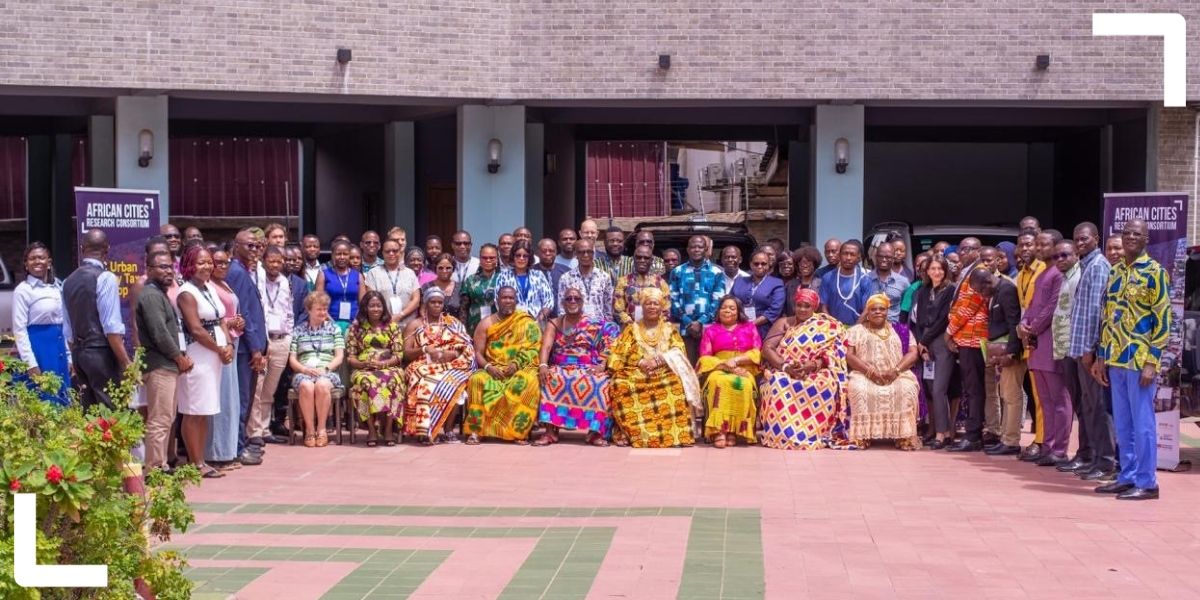Funding the urgent development needs of a city like Accra requires additional sources of domestically generated revenues. Property taxation could prove to be an important source of financing to pay for the infrastructure and public service investments the city requires, but implementing new taxes is always politically contentious and a technical challenge.
To address these challenges, the ACRC team in Accra, led by People’s Dialogue, recently hosted an international Urban Property Tax Workshop. Over three days, participants from ACRC cities, Ghanaian local and traditional authorities, civil society organisations, academia, professional bodies and the media came together to examine the design and administration of property taxation. The workshop explored both successful and unsuccessful approaches, and how reform efforts have enabled local governments to unlock the potential of property tax as a vital tool for domestic resource mobilisation.
The event provided a collaborative space for shared learning, aimed at generating insights to drive systemic change. Discussions covered both technical and political dimensions of tax systems, highlighting the complexity of, and opportunities for, effective property tax reform.
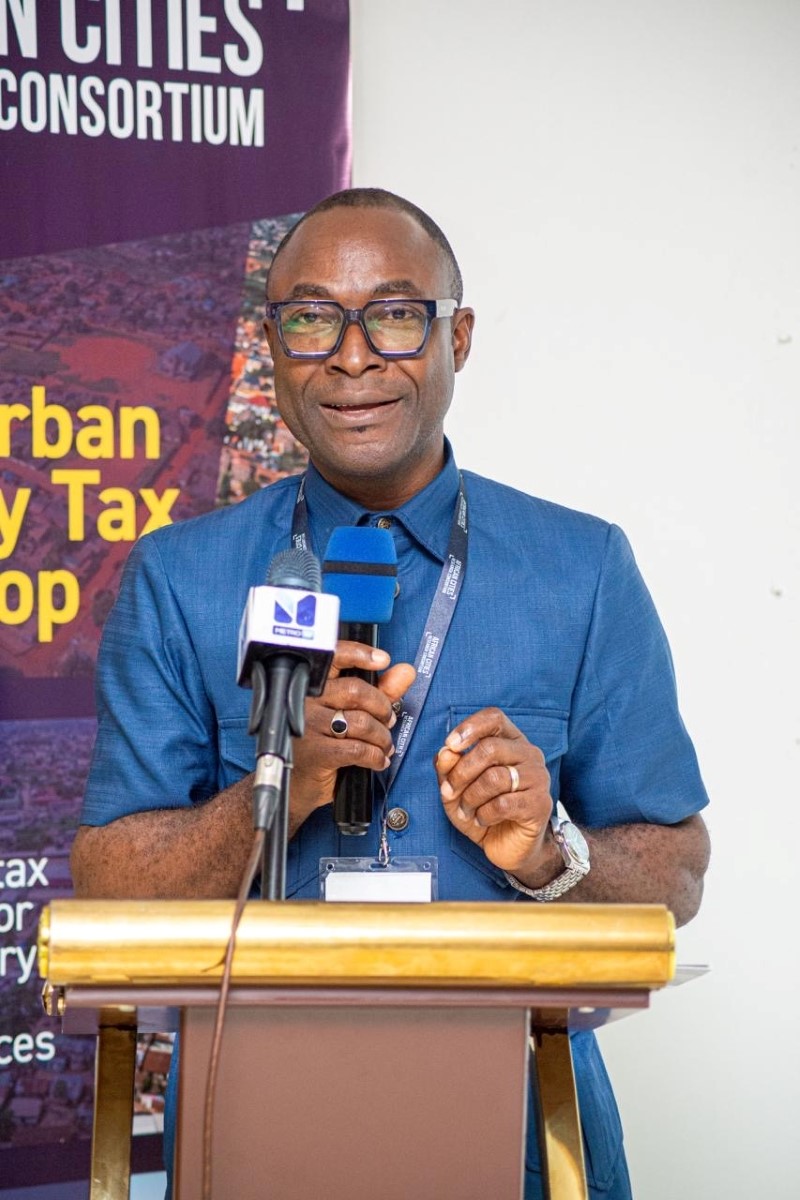
Reform challenges and governance insights
The workshop began with calls for collaboration and mutual learning. Remarks delivered by Madam Jemima Lomotey, Head of the Planning Department, speaking on behalf of the Greater Accra Regional Minister, highlighted the importance of collective action in tackling governance challenges, while Harriet Arjumang of Send Ghana and, Executive Director of Local Governance Network (LoGNet) emphasised the need for property tax reform to reflect Ghana’s specific fiscal and administrative context.
Irene Vance reaffirmed ACRC commitment to fostering inclusive, dialogue-driven spaces to support meaningful reform. Contributions from Paramount Chief of the Abola Traditional Area in Accra, Nii Ahene Nunoo II reinforced the importance of decentralisation and the transparent, accountable use of revenues to build public trust.
The session began with presentations by Samuel B Biitir, ACRC’s land and connectivity domain research lead in Accra, and Wilson Prichard, Associate Professor at the University of Toronto, Chair of the Local Government Revenue Initiative (LoGRI), and Research Fellow at the International Centre for Tax and Development (ICTD), both highlighting persistent barriers to effective property tax reform in developing countries.
Biitir focused on Ghana, outlining long-standing issues such as outdated valuations, weak collection systems, and low public trust. These, he argued, are “wicked problems” rooted not in technical gaps but in the political economy of municipal finance.
Prichard reinforced this view with a broader perspective, noting that despite property tax’s theoretical advantages, efficiency, equity, and service linkage, it remains underused. He attributed this to colonial-era systems and the political sensitivity of taxation, especially when seen as unfair.
Hon. Ahmed Ibrahim, Minister for Local Government, Chieftaincy, and Religious Affairs, acknowledged systemic barriers to property tax reform in Ghana, including unclear mandates, capacity gaps, and political resistance, but reaffirmed government resolve, stating:
“The most scarce commodity in all this has been political will. And this morning, as I stand here, I can say: we have it.”
The three speakers converged on key themes: the enduring impact of historical legacies, entrenched institutional and political constraints, and the imperative for reform strategies that are both technically sound and politically feasible.
Xaver Schenker, Technical Advisor for Local Government Revenue Mobilisation, addressed the administrative side of reform, stressing the need to align IT systems with real administrative practices, advocating a holistic approach and stronger coordination across government and external actors.
James Dzansi, Senior Country Economist at the International Growth Centre, explored the potential and risks of digital technologies in property tax administration. While highlighting their transformative power, he warned of the need for real-time monitoring and safeguards to prevent unintended consequences.
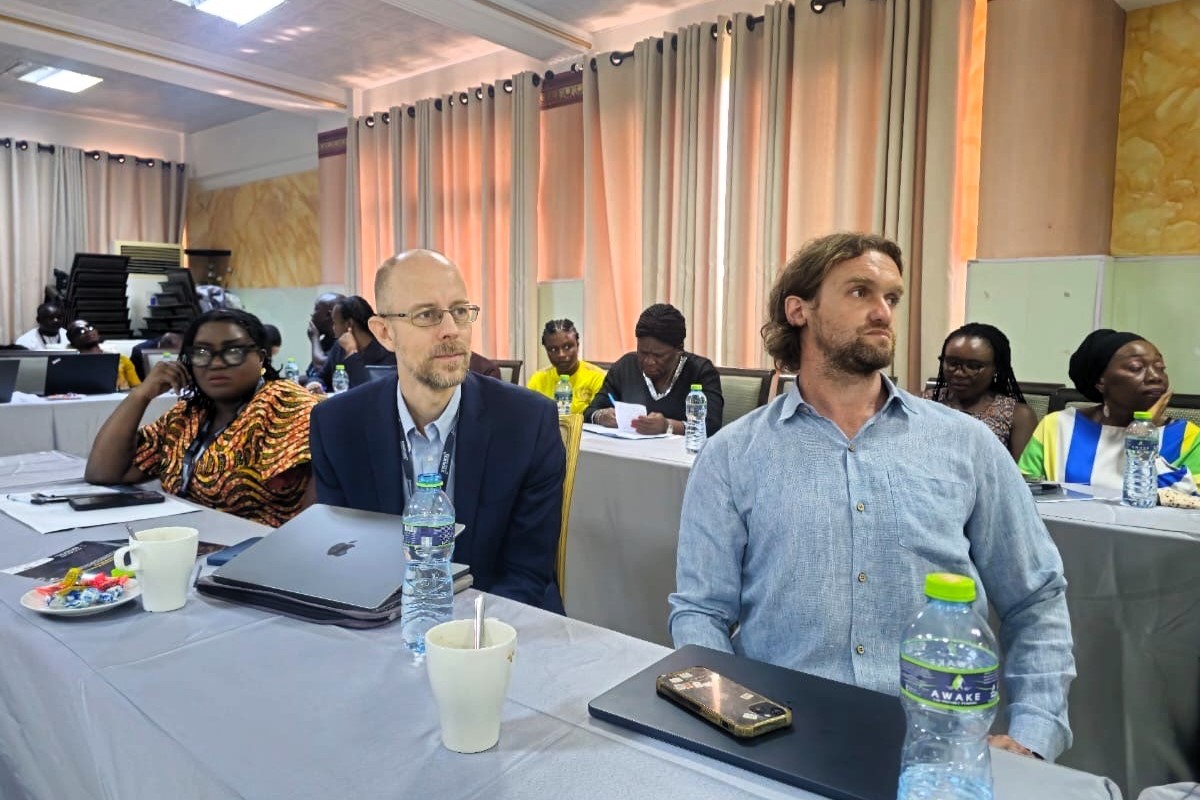
Later in the day, the third session continued with a focus on the governance dimensions of property tax.
Colette Nyirakamana, Research Lead at LoGRI, and Camille Barras, Policy Lead at LoGRI, emphasised that effective property tax administration relies on collaboration but is consistently hindered by limited data sharing, institutional silos, weak legal frameworks, and centralised control – challenges illustrated through cases from Kenya, Côte d’Ivoire, Senegal and Benin.
Fariya Mohiuddin, Interim Deputy Director – External Affairs at Tax Justice UK, followed with a discussion on making transparency and accountability meaningful in tax policy, urging governments to make information accessible, relevant, and citizen-focused through local languages, mobile platforms, and practical formats.
Frank Ohemeng, Associate Professor at Concordia University, concluded with a presentation on the intergovernmental relationships that shape property tax in Ghana. Echoing the phrase “a vision without implementation is hallucination,” he added that the source of the vision is just as important – someone must craft it before it can be realised. He highlighted power imbalances and the need to understand the institutional context that shapes local government authority.
Digitalisation and political dimensions
The second day began with a focus on the role of digitalisation in strengthening property tax systems, featuring impactful case studies that illustrated how digital tools are transforming administration.
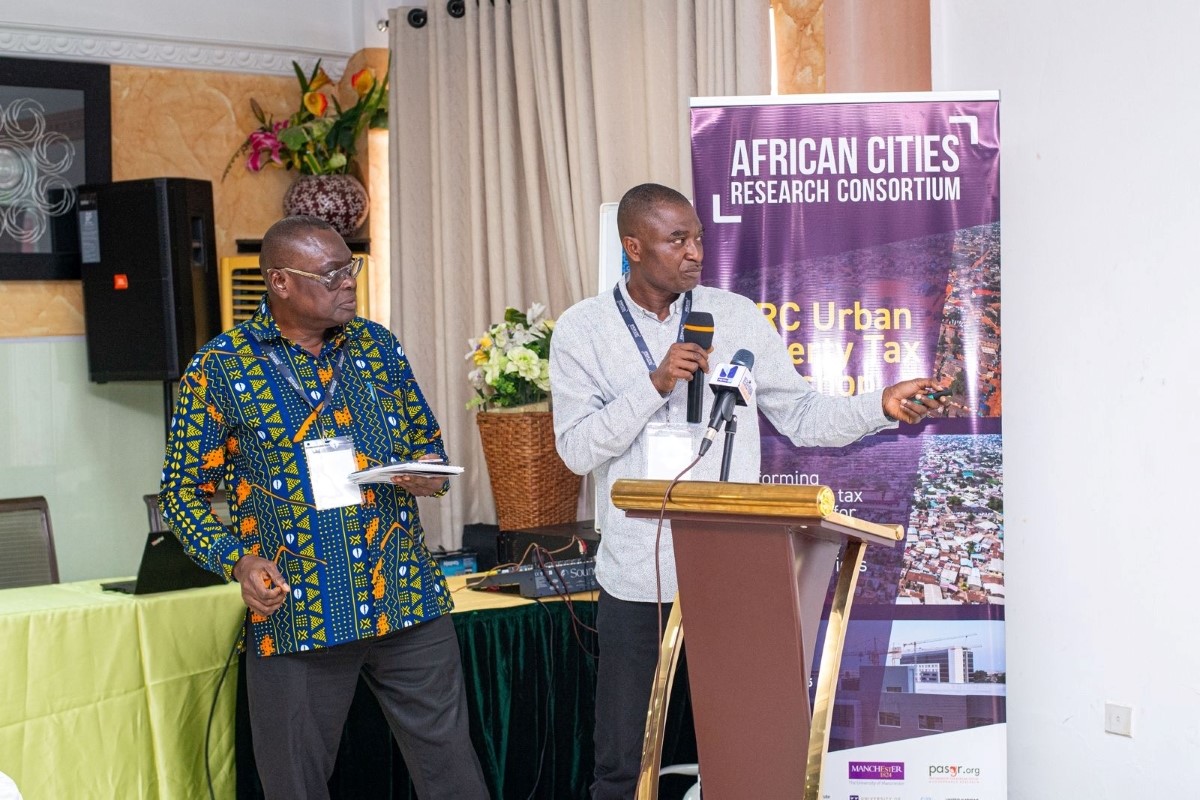
Bilal Choho, PhD student at the Paris School of Economics, shared insights from Dakar’s property tax reform, where outdated rolls and vague addresses had long hindered progress. He outlined a reform launched in 2017 through collaboration between researchers and tax authorities, which introduced digital tools and a large-scale property census. As a result, tax agents in Dakar now use modern IT systems with accurate, parcel-level data.
Krishnakumar Thiagarajan, Vice President, Partnerships and Delivery at eGOV Foundation, introduced the DIGIT Property Tax System, an open-source platform that digitises the entire tax cycle using tools like GIS mapping and automated calculations. Already adopted in several Indian states, he explained how the system enhances accuracy, transparency, and citizen trust, while remaining flexible enough to adapt to local laws.
Momodou Lamin Badjie, Deputy Director of Services and Head of GIS at Kanifing Municipal Council, The Gambia, shared strategies for boosting local revenue, highlighting the use of Google Plus Codes – an open-source addressing system that enables property identification in areas without formal street names. This innovation has supported the creation of tax compliance maps now used to enhance billing and track payments.
Evan Trowbridge, Technical Lead at the LoGRI, presented Sierra Leone’s digital property tax reform, launched in Freetown in 2019 and now expanded to two additional cities. He explained that the reform aimed to build citizen trust through transparency and a locally tailored IT system. Digital tools – such as GIS for property mapping, CAMA for valuation, and platforms for billing, mobile payments, and staff oversight – have improved efficiency, data management, and inter-agency coordination. While still evolving, he noted, the system has been in use for five years and supports a sustainable tax cycle, from property discovery to billing, collection, and updates
These case studies underscored the power of inclusive, trust-based reform facilitated by digital tools. However, challenges such as poor internet connectivity, incomplete data, and resistance from revenue collectors were also noted.
In the afternoon, attention shifted to the political dimensions of property tax reform.
Wilson Prichard presented a thought-provoking analysis on why property tax remains one of the most underperforming revenue sources in lower-income countries. He challenged participants to reflect on political resistance to reform as a central barrier, questioning why it is so entrenched, why public support is weak, and what can be done to overcome these challenges.
Vanessa van den Boogaard, Research Fellow at the ICTD, provided an in-depth analysis of property tax reform in Sierra Leone, examining how elite resistance and citizen mistrust hinder progress and stressing the need to build broad-based coalitions. Her presentation also highlighted the complex role of traditional authorities, who can act as either enablers or spoilers of change.
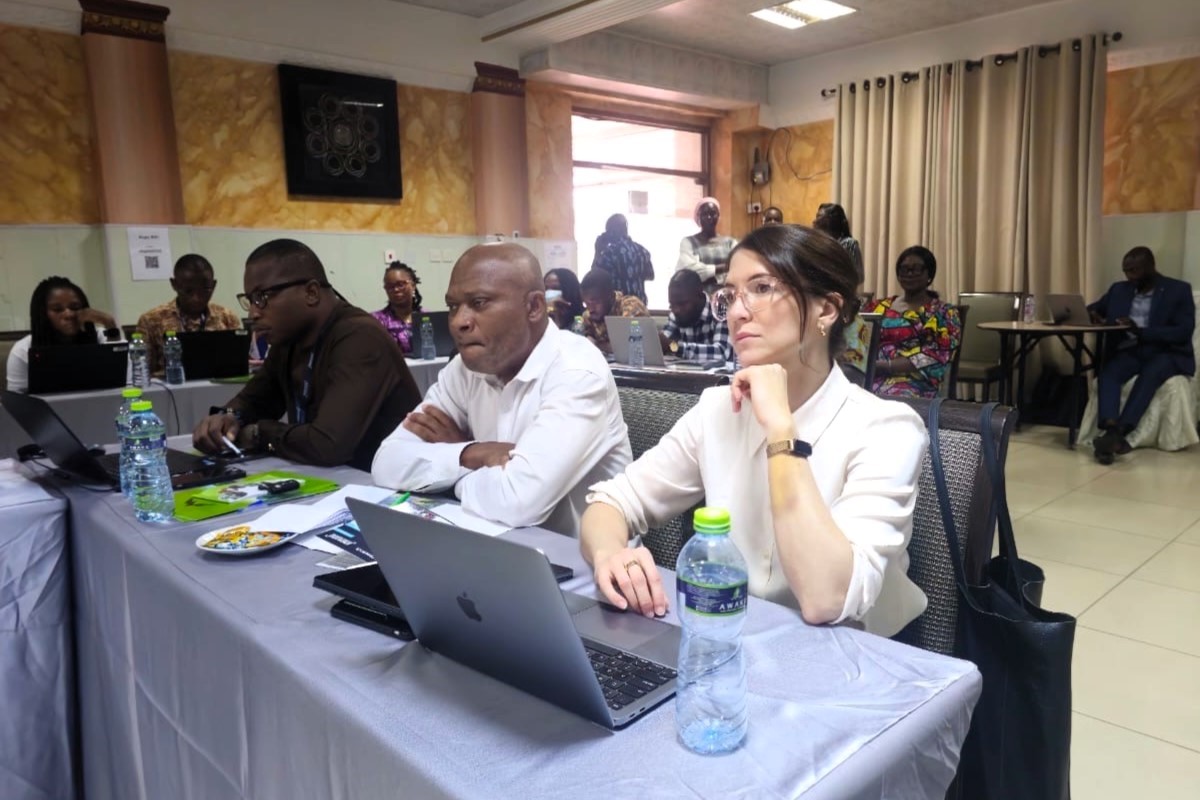
Implementation, governance and the path forward
The final day focused on the broader governance context and implementation realities in Ghana.
Richard Agyepong, Senior Lecturer at the University of Education Winneba, highlighted key barriers, such as central government control over a local tax, the high cost of valuations, and deep-rooted public mistrust. A core message was that reform requires a shift in mindset and administrative culture across all government levels, not just systems.
The Land Valuation Division (LVD) presented on reforming property tax through effective rating valuation, reaffirming its legal mandate and showcasing the digital infrastructure and technical expertise available to support Metropolitan, Municipal and District Authorities (MMDAs). Their message was clear: better data and well-defined processes are essential for building public trust and improving compliance.
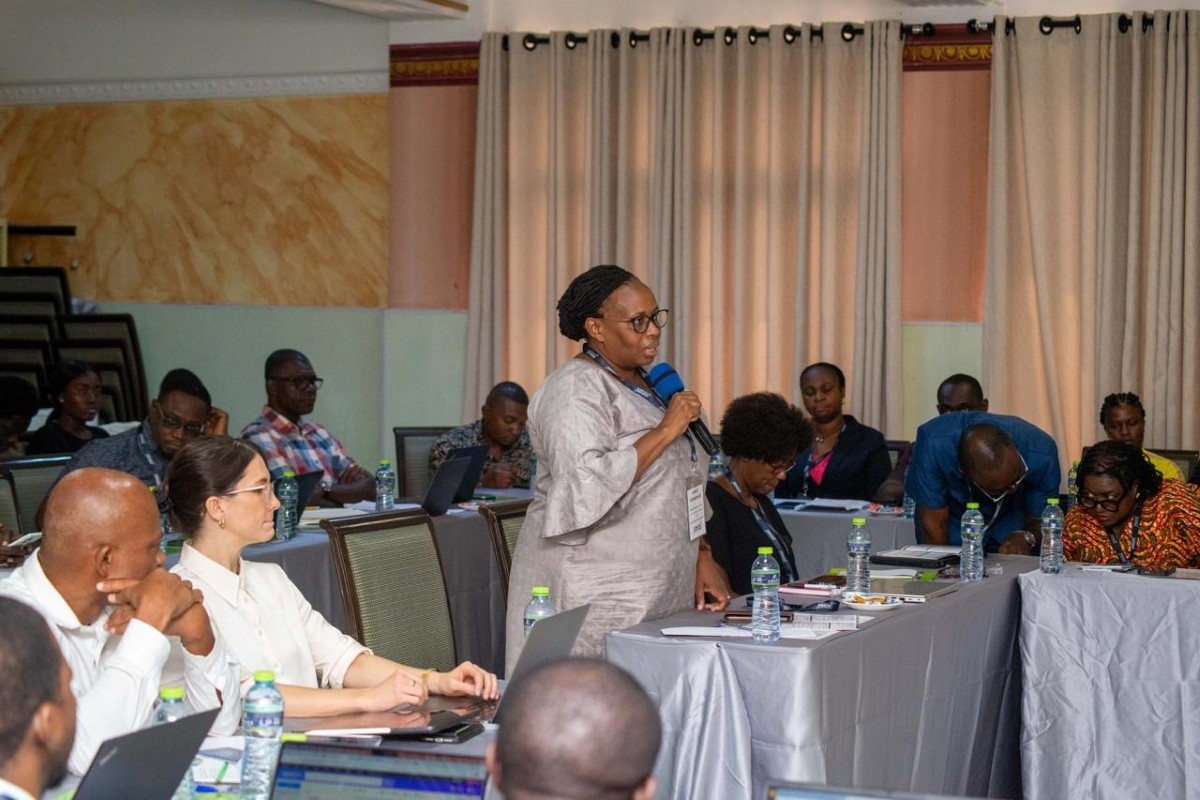
Experiences from the ground provided practical lessons:
The Kumasi Metropolitan Assembly (KMA) shared reflections from their reform journey. Key lessons included making capital projects visible to communities to build trust, enforcing digital payment systems via national directives, and investing in media and outreach to drive digital adoption.
The Cape Coast Metropolitan Assembly shared the experience of the TREE Project, demonstrating how digital tools can transform administration. She also reiterated ongoing challenges like poor internet connectivity in rural areas, incomplete property data, and resistance from revenue collectors. However, an optimistic outlook suggested that with the right infrastructure, training, and public engagement, MMDAs can achieve financial autonomy and sustainable local development.
Moving the debate forward
In conclusion, the Urban Property Tax Workshop provided a rich and practical dialogue, bringing together national and international experts, local government leaders, and practitioners. It offered a compelling exploration of both the technical innovations and political challenges that are shaping the future of urban property taxation.
The discussions underscored that successful reform requires not only effective systems and data but also strategic navigation of political resistance, building public trust through transparency and visible service delivery, adapting technology to local contexts, and fostering collaboration across institutions and levels of government. We hope that local and national government, supported by researchers and civil society can maintain the momentum to create a fair, equitable and effective system of property tax in Accra.
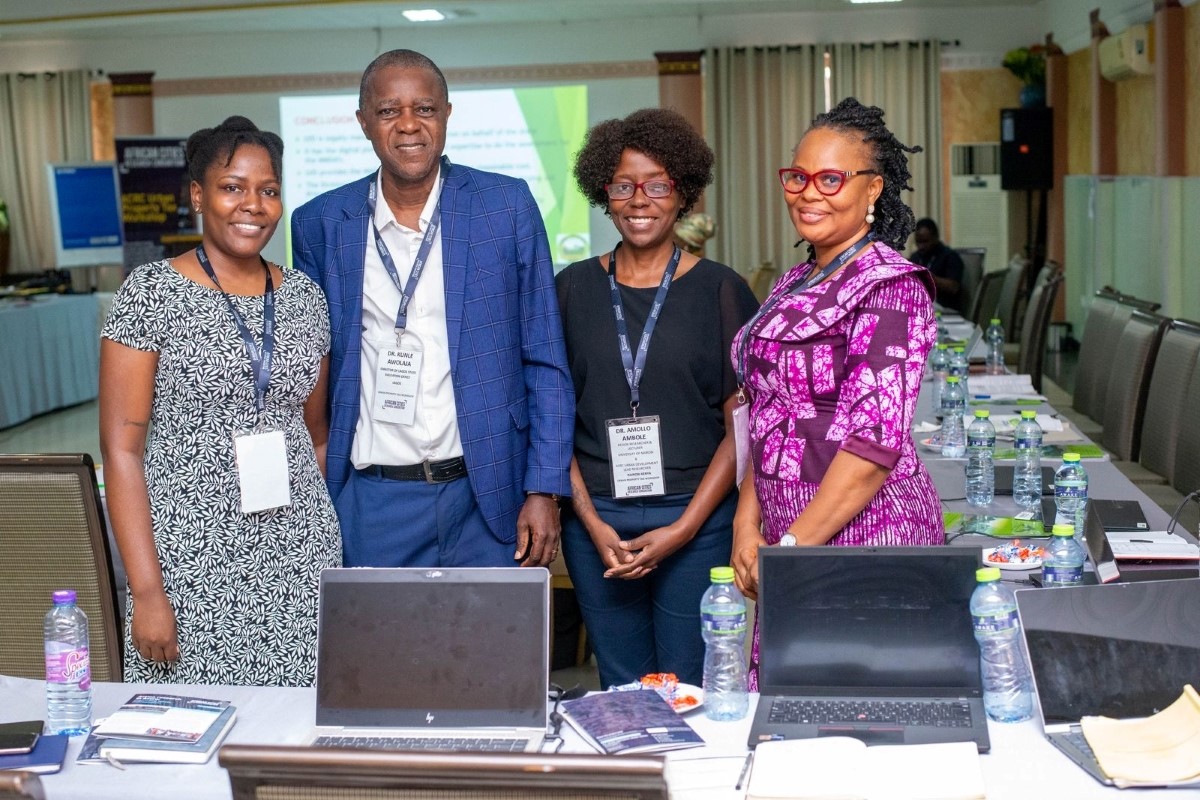
Note: This article presents the views of the authors featured and does not necessarily represent the views of the African Cities Research Consortium as a whole.
The African Cities blog is licensed under Creative Commons Attribution-NonCommercial-NoDerivatives 4.0 International (CC BY-NC-ND 4.0), which means you are welcome to repost this content as long as you provide full credit and a link to this original post.

